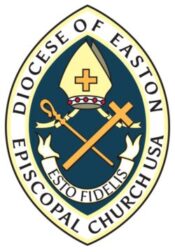
Reflection on Ascension Sunday & Pastoral Note
My beloved Diocesan Family,
“… Glorify your Son so that the Son may glorify you.” John 17:1
The Christian Church in its wisdom has arranged the ordering of its liturgical life in seasons. Each season speaks to a particular theme germane to the individual time of the year and the gospel focus that needs to be emphasized.
The world is rapidly changing at a pace many of us are unable to keep up with and as a result more often than not we get frustrated, confused and overwhelmed. What’s the natural response to this uncomfortable phenomenon? Refusal to comply or get acclimated thus denying ourselves a role in fashioning the new fabric. Conversely, others greet the new challenges with enthusiasm, renewed joy and gleeful anticipation. They see all as new opportunities and see through the lens of experimentation – reshaping and reforming tried and tested ways of engaging life and the meaning of their existence. Someone recently referred to this era as working in a ‘zone of disequilibrium’, that is, experimentation where the outcome is always uncertain and full of surprises. This is similar to the early church’s response to the post- resurrection experiences including the events surrounding the ‘Ascension Narrative’.
The significance of Ascension is that it underlines the exaltation of Jesus, and is a fitting conclusion to his ministry. Also, it authenticates his message about his relationship with the Father and his imminent return (Greek Parousia) at a time appointed by his Father in heaven. Sadly, in the Anglican/Episcopal liturgical culture it has never held a prestigious or prominent place in the church’s liturgical calendar.
Ascension Day on Thursday, May 18, and Ascension Sunday’s observance is a confirmation of the faith of the people of God in Jesus as Savior, and that our life in him is embodied in an inseparable bond with God. Every Christian enters this union through baptism in Jesus, and the anointing of the Holy Spirit. Jesus both reassures and comforts his followers in one of my favorite New Testament texts, “And I, when I am lifted up from the earth, will draw all people to myself” (John 12:32). What this requires of us is a relentless commitment to pursue the way of life the ascended Christ calls us to live. By this, we become witnesses both in word and action, to the living Christ by pointing others to the way of life he himself lived, and to which the ancient saints sacrificed so much to define and refine through their spiritual writings and autobiographies. Christ is now exalted above the heavens, but he still suffers on earth all the pain what we, the members of his body, have to bear. He showed this when he cried out from above: “Saul, Saul, why do you persecute me? And when he said: “I was hungry and you gave me food.”
Augustine of Hippo reminded the church that, “Jesus did not leave heaven when he came down to us; nor did he withdraw from us when he went up again into heaven. The fact that he was in heaven even while he was on earth is borne out by his own statement: ‘No one has ever ascended into heaven except the one who descended from heaven, the Son of Man, who is in heaven.” These words are explained by our oneness with Christ, for he is our head and we are his body. No one ascended into heaven except Christ because we also are Christ: he is the Son of Man by his union with us, and we by our union with him are children and heirs of God. So, the Apostle says: “Just as the human body, which has many members, is a unity, because all the different members make one body, so is it also with Christ.” He too has many members, but one body.
As we prepare for the Church’s observance of the coming of the Holy Spirit (celebrated on the Feast of Pentecost, Sunday, May 28) to what many have come to fondly refer to as the ‘birthday of the Church’, let us recommit our corporeal life as a diocesan community of faith and even our individual life to laboring with Jesus for the transformation and redemption of our neighborhood and community. The Spirit continues to work through faithful followers of Jesus to make sacred the secular world. It may do us well to reset the trajectory of our vocation to live in solidarity and conformity with the purpose of God for the world and creation.
Additional Information of Bishop’s Sabbatical:
Pursuant to Canon III. 12. Sec. 4(c), the bishop’s sabbatical is less than six months as such there isn’t a need to invoke the canon. However, provisions are made for the Standing Committee to function in collaboration with the staff of the Office of the Bishop the administrative duties that are required for the ongoing life of the diocese. Additionally, the bishop has signed a Letter of Agreement with Bishop Robert ‘Bob’ Ihloff, Assisting Bishop of Maryland, to serve as Visiting Bishop with prescribed Episcopal authority in collaboration with the Standing Committee and Office of the Bishop. This Letter of Agreement is valid until September 15, 2023. It has been agreed to by Bishop Ihloff that he should be contacted through the Canon to the Ordinary.
As usual, my prayers are for your protection, guidance, sustenance and the Spirit’s comforting presence be yours now and forever! Amen!
Every blessing!
+San
